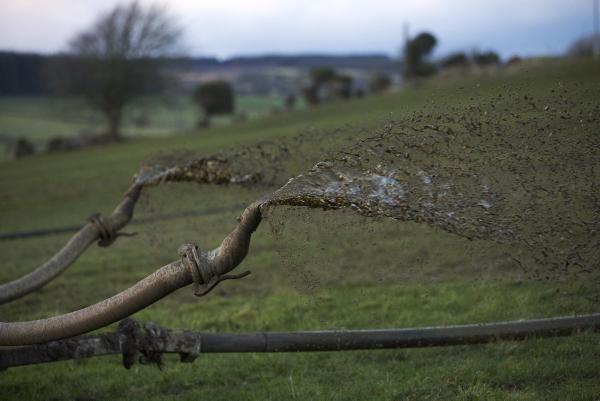Duncan Stewart of RTÉ’s Eco Eye is beginning to get through to me. With storm after storm and repeated deluges for the past eight weeks, most would agree that our weather patterns are changing.
Summers – with notable exceptions – have become hotter and winters have become milder and wetter. Weather extremes are now more commonplace but the recent river flooding is as much to do with poor OPW waterway maintenance as it is extreme rainfall.
Our climate is definitely changing but whether this is as a result of man’s love affair with carbon fuels is the big question. Stewart is firmly of the opinion that we are all to blame but I’m not entirely convinced.
Weather and climate are cyclical and, as such, have always been in a continual state of change. However, it has to be said that the rate of temperature change which is currently happening is much quicker than heretofore.
But climate change isn’t all bad news – increased mean air temperatures will mean a longer grass growing season which will be good for the dairymen. And heavy land cereal growers love hot, dry summers.
Whatever your view on what’s happening to our weather, it has to be sensible to reduce our dependence on fossil fuels. However, that’s not a good excuse to cover the countryside with thousands of windmills. Wind power is undeniably a part of the clean energy solution but moderation will be required.
However, all these weather arguments are irrelevant when your slurry tanks are full and fields are saturated with water. If ever there was a year to demonstrate the foolishness of calendar farming, this is it.
We had perfect weather last autumn and early winter for slurry spreading. The fields were dry and the water table was low but alas the regulations said no. Now we are in the open season but slurry spreading is impossible due to field conditions and, anyhow, inadvisable due to the risk of run-off.
Calendar farming is bureaucracy gone mad and is completely contrary to good farming practice. It’s also entirely counterproductive; arguably more slurry will end up as a pollutant this year due to the regulations. Like the little boy making a frantic dash for the school toilet, there comes a time when you’ve just got to go.
There appears to be increasing interest in growing spring beans. Grown on heavy soils, beans are capable of three tonnes/acre in a good year but yields are inconsistent. Our rolling average for the last five years is around 2.4t/ac. At last harvest’s prices, the bean crop was broadly similar in gross margin terms to 1.3t/ac of spring oilseed rape but well behind spring barley.
Much is made of the fact that beans leave considerable quantities of residual nitrogen. However, in my experience, beans are a hungry, scavenging crop and seem to deplete P and K levels, the effect of which can be seen in the following wheat crop. But for all of that, they are pleasant to grow and weed control is now pretty successful.
The bugbear with beans is the late harvest. Desiccation is very hit and miss – Roundup has little effect and Reglone is little better. Combining is relatively straightforward but header losses and gummed up sieves can be a major problem. I see some merchants are offering contracts for the 2014 bean crop. I am not a feed compounder but prices of around €215/t seem to undervalue beans in terms of their protein-rich and highly palatable feed value. Early sowing is desirable but we’ll have to wait, at least until the tide goes out.






 This is a subscriber-only article
This is a subscriber-only article











SHARING OPTIONS: